Telenor Asia, a telecommunications services provider in Singapore, released its second edition of “Digital Lives Decoded”. The study delves into five key drivers that show how mobile devices enable people to live better digital lives.
In the second year of this report, survey findings from 8,087 mobile internet users from eight markets in South and Southeast Asia* summarized three observations:
Petter-Børre Furberg, EVP and Head of Telenor Asia said: “Our first study came at a time when the world was emerging from the global pandemic and the pace of digital adoption accelerated. This year’s findings build on those trends as mobile usage continues to gain momentum. In 2023, we see a shift where mobile use has the greatest impact on people’s lives, with work becoming the primary driver for increasing usage, and a majority using their devices to pick up new skills.”
As inflation continues to see rising living costs, more people are turning to their mobile devices to search for cheaper alternatives, compare options, and accessing a myriad of mobile tools to manage finances.
70% of users use their devices for price comparisons, while 65% also scour the internet to find the best deals. Price aggregator websites, budget management, e-commerce platforms are some of the examples where consumers can easily access to compare price offers for anything from insurance, credit card deals to utilities providers.
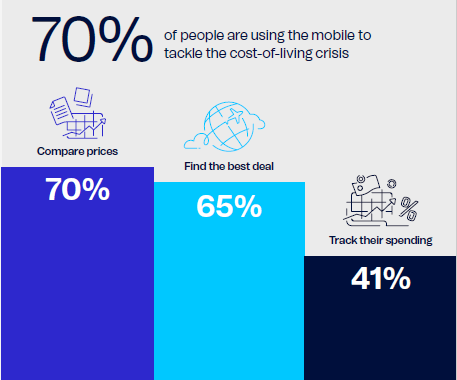
Driver 1: Building Healthy Social Connections Online
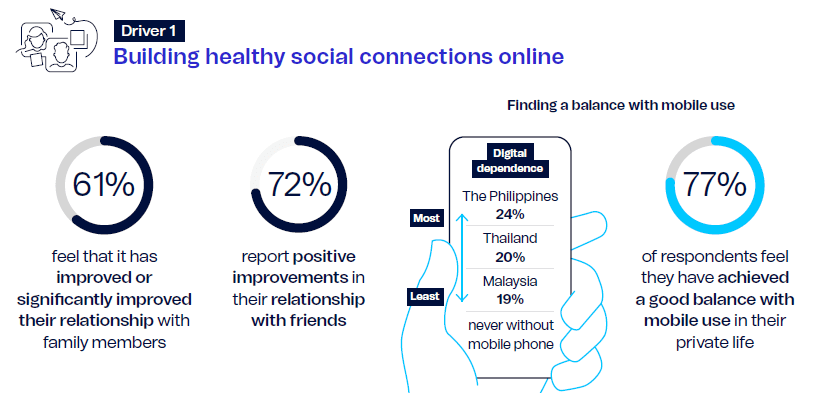
Most people (61%) continue to feel that the mobile has improved or significantly improved their relationship with family members, while 72% report positive improvements in their relationship with friends.
Drive 2: Opening up new opportunities at work
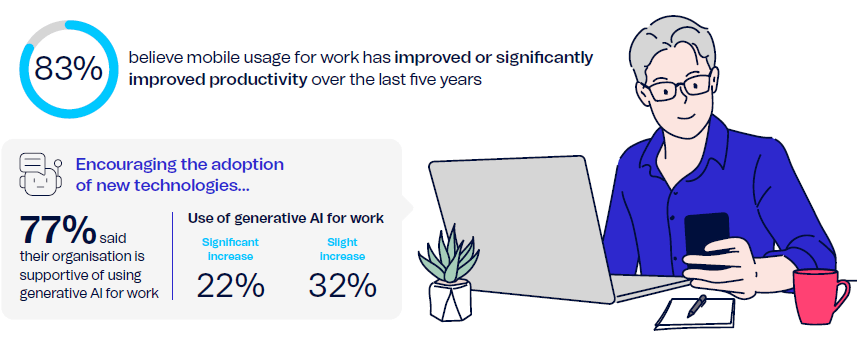
Since the pandemic and the uptake of remote working models, organizations are expected to deploy and enable effective digital workplace experiences. Similarly, job seekers and professionals believe that mobile usage has helped them in increasing productivity and improved on work quality and performance.
Respondents also anticipate the adoption of new technologies to accelerate in the workplace, with 77% indicating their organization is supportive of using generative AI for work. At least one in five (22%) expect the use of generative AI to significantly increase in the next 6 months, while 86% would like to see their employers provide more training on this front.
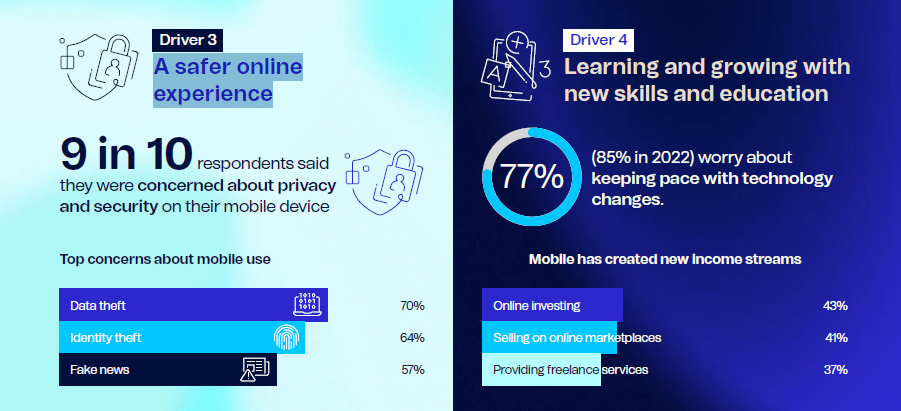
Driver 3: A safer online experience
In an age of growing mobile use, majority (90%) share concerns on privacy and security. 57% of respondents stated that privacy and security are vital in how they approach the services and apps they access on their mobile devices.
These concerns were most prevalent for the elderly and children. Over three-quarters (77%) highlight concerns over the online safety of elderly family members. Concerns over children were even higher, at 81%.
This trend was most apparent in Malaysia (90%), the Philippines (89%), and Singapore (84%) – countries where online scams have increased in recent times. People name their top concerns as being around data theft (70%), identity theft (64%) and fake news (57%). Showing the prevalence of these issues, nearly a third of people (29%) say they encounter a phishing instance at least once a week.
Driver 4: Learning and growing with new skills and education
Maintaining a recurrent theme from the 2022 Digital Lives Decoded Study, mobile use facilitates upskilling opportunities and creates new income streams. Over half (56%) of those surveyed this year said their mobile devices continue to open the door to learning new skills. 87% of respondents said they had used their mobile to learn a new skill in the last 12 months, with Indonesia leading this trend.
Communication skills such as learning a new language (57%), social media management (50%) and selling on e-commerce platforms (49%) emerged as the most desirable skills to learn via mobile device. 67% said they would like to use the skills they have gained to earn additional income – with this highest in Indonesia (74%) and lowest in Singapore (50%).
Driver 5: Reducing our impact on the planet
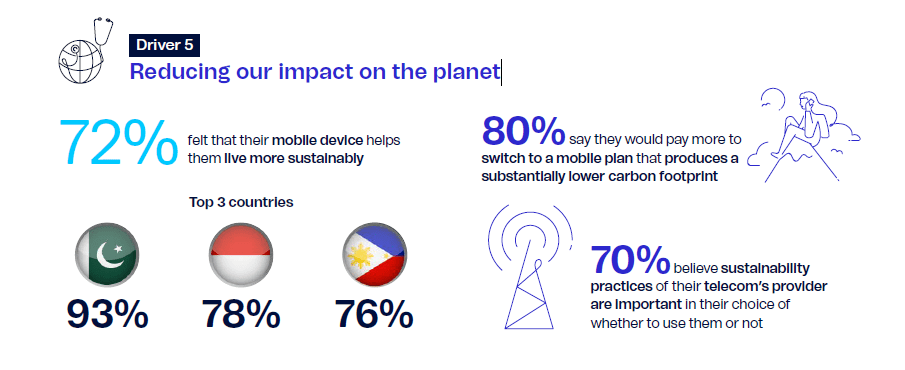
72% of the people surveyed felt that their mobile use helps them live more sustainably by reducing their paper usage, affording them access to education and information, and being more informed about daily life choices, such as information about transportation options.
While a significant majority (90%) expressed concern over the environmental impact of their mobile use, one in five people are not at all aware of the carbon footprint they generate.
Looking on the brighter side, 42% of young people (18-30 years old) are very aware of their carbon footprint, and 41% state that the sustainability practices of their telco provider are very important to them. They are also the most likely (75%) to say that their mobile allows them to live more sustainably.
This article is adapted from Telenor Asia’s press release.
About the Report
The second year of the “Digital Lives Decoded” study delves into the five key drivers that show how mobile devices enable people to live better digital lives. These drivers are building healthy social connections online, unlocking new opportunities at work, facilitating skills growth and education, mitigating the impact on the planet, and cultivating safer online experiences.
This report summarizes findings from a survey undertaken in August 2023 of 8,087 mobile internet users spread across eight markets in South and Southeast Asia, including Bangladesh, Indonesia, Malaysia, Pakistan, the Philippines, Singapore, Thailand, and Vietnam.
You can read the full report here: https://www.telenorasia.com/digitallivesdecoded2023






